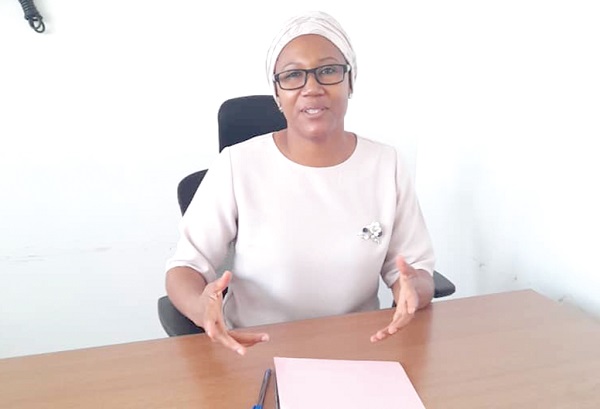
Nation records increase in paediatric oncologists
There is a steady increase in paediatric oncologists — specialists in children’s cancer — in the country.
From a single paediatric oncologist in the country in 2009, the number doubled the following year and later increased to four. Currently, more than eight doctors are undergoing training in child oncology.
Advertisement
The Head of the Child Oncology Unit of the Greater Accra Regional Hospital (formerly Ridge), Dr Nihad Salifu, disclosed this in an interview with the Daily Graphic in Accra, ahead of the International Childhood Cancer Day (ICCD) which falls today, February 15, 2023.
She also said there were about 40 qualified paediatric oncology nurses through the efforts of the first two paediatric oncologists, the World Child Cancer Organisation and the UBS Foundation.
There were also qualified paediatric oncology pharmacists, she said, adding: “We now have healthcare professionals who have the competency to recognise and diagnose childhood cancers and treat them.”
Care facilities
Dr Salifu further said apart from the training of healthcare professionals, institutions that offered treatment for childhood cancers in the country had also increased, and that aside from the Korle Bu Teaching Hospital, the Komfo Anokye Teaching Hospital and the Greater Accra Regional Hospital also offered treatment.
She said paediatricians in five other health centres around the country had also been trained to diagnose the disease and help patients along their treatment pathways.
“Sometimes they are able to treat the patients fully at their centres; other times they get to a point where they refer the patients to us.
“These facilities are spread around the country. In the north, we have the Tamale Teaching Hospital. There are also the Ho Teaching, the Techiman Holy Family, the Agogo Presbyterian and the Cape Coast Teaching hospitals which are located at vantage places in the country,” she said.
Challenges
Dr Salifu, however, said the biggest challenge was funds to investigate cases and offer treatment, which she said was expensive.
She said although four of the childhood cancers were on the National Health Insurance Scheme (NHIS), the implementation was still at its rudimentary levels and as such access to drugs was difficult.
According to her, most childhood cancer drugs were imported by private individuals, thereby making them expensive, including the fact that many healthcare facilities were unable to stock them at the health insurance prices.
“Even though on paper we are happy that they have been captured, which is a great starting point, the implementation has been really slow and hectic,” she said.
She appealed to the media to help sensitise the public to childhood cancers to illicit more support from the government, philanthropic organisations and individuals.
Cancer Day
February 15, every year is observed all over the world as International Childhood Cancer Day (ICCD).
The day is used to raise awareness of childhood cancer and also support patients and families experiencing the effects of the disease.
This year’s commemoration will be on the theme: “#throughtheirhands”, which will pay tribute to families and caregivers and the positive impact they have on the lives of children and adolescents with cancer.



